Animals
-
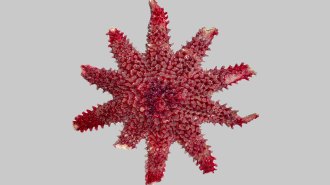 Animals
AnimalsUrchin mobs team up to butcher sea stars that prey on them
Urchins are important herbivores in nearshore ecosystems, but are not strict vegetarians, with hunger that extends even to munching predatory nemeses.
By Jake Buehler -
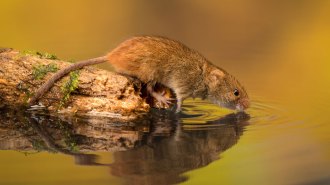 Animals
AnimalsMammal brains may use the same circuits to control tongues and limbs
When mice drink water, they make corrective motions with their tongues that resemble similar adjustments made by primates when they grab for objects.
-
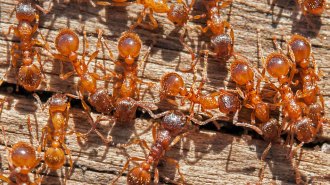 Life
LifeEuropean fire ant chemicals may send spiders scurrying away
Black widows and some other common spider species avoid spaces where fire ants once roamed, suggesting the insects could inspire a spider repellent.
-
 Animals
AnimalsThe U.S.’s first open-air genetically modified mosquitoes have taken flight
After a decade of argument, Oxitec pits genetically modified mosquitoes against Florida’s spreaders of dengue and Zika.
By Susan Milius -
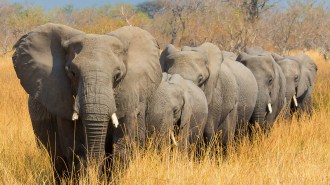 Animals
AnimalsElephants are dying in droves in Botswana. Scientists don’t know why
Some type of pathogen may be behind the recent deaths of 39 elephants, a new wave that follows 350 deaths last summer.
-
 Neuroscience
NeuroscienceScientists remotely controlled the social behavior of mice with light
New devices — worn as headsets and backpacks — rely on optogenetics, in which bursts of light toggle neurons, to control mouse brain activity.
-
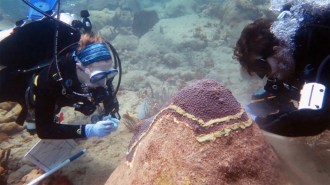 Animals
AnimalsA common antibiotic slows a mysterious coral disease
Applying the antibiotic amoxicillin to infected lesions halted tissue death in corals for at least 11 months after treatment.
-
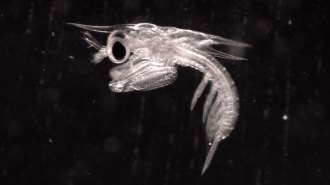 Animals
AnimalsMantis shrimp start practicing their punches at just 9 days old
The fastest punches in the animal kingdom probably belong to mantis shrimp, who begin unleashing these attacks just over a week after hatching.
-
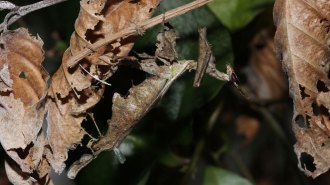 Animals
AnimalsThis praying mantis inflates a strange pheromone gland to lure mates
Researchers stumbled across a first among mantises: an inflatable organ that spreads pheromones, helping mates find each other in the dark rainforest.
By Jake Buehler -
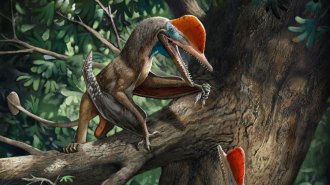 Paleontology
Paleontology‘Monkeydactyl’ may be the oldest known creature with opposable thumbs
A newly discovered pterosaur that lived during the Jurassic Period could have used its flexible digits to climb trees like a monkey.
-
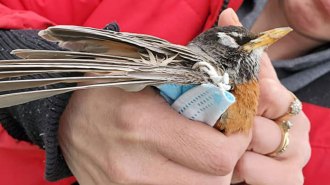 Animals
AnimalsDiscarded COVID-19 PPE such as masks can be deadly to wildlife
From entanglements to ingestion, two biologists are documenting the impact of single-use masks and gloves on animals around the world.
-
 Oceans
OceansCorals’ hidden genetic diversity corresponds to distinct lifestyles
Observation and DNA analysis expose identical reef corals as distinct species with unique ecologies, suggesting much greater coral biodiversity.